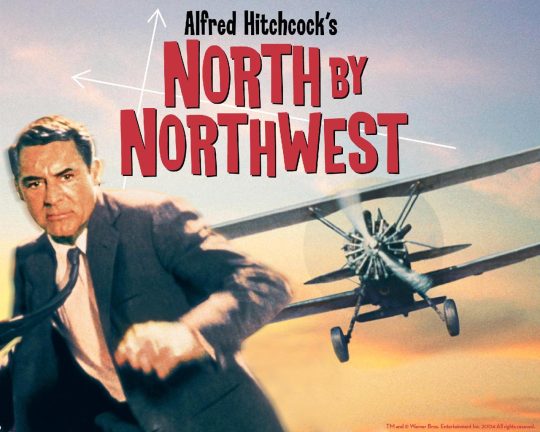I’m starting a new blog series! It’s called #FilmFriday! It’s about films & it’s posted on a Friday! Says it all, really.
My film devotee partner is Jane Lythell and today we are going to talk about a favourite of ours: Hitchcock’s MARNIE.
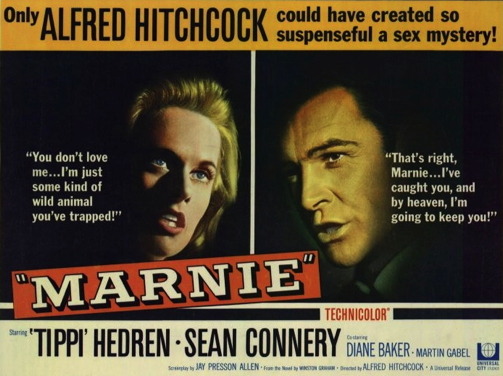
JL: Some first thoughts about Marnie:
Interesting to see it was written by
Winston Graham of the Poldark novels.
I think what the film is trying to
explore is the enigma of female sexuality. Marnie is a woman of mystery and she
brings trouble in her wake. She hates men and loves horses. She constantly
transgresses. What makes her behave as she does?
And what do we make of a hero who
blackmails a woman to marry him?
As so often with Hitchcock the
opening scenes are brilliant and pull you right into the narrative.
You see a dark-haired woman on a
platform from the back. Cut to a man complaining about a theft of 10,000
dollars and the first appearance of Mark Rutland who refers to her as ‘the
brunette with legs’.
Shortly afterwards Marnie is in a
hotel bedroom with a complete new wardrobe and washing the dark out of her
hair. She smiles at her reflection with her blonde hair restored.
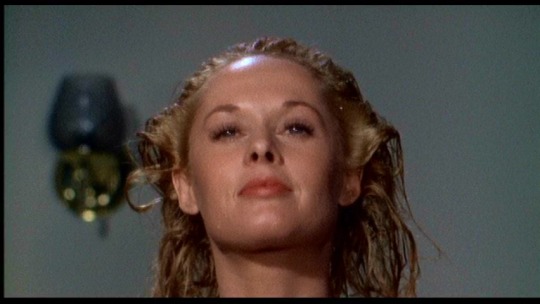
She comes over as super efficient,
super in control. No sense of fear or dread about what she has done. She
changes her identity with ruthless efficiency.
She is a woman who transgresses and
appears to be prospering by it.
Alfred Hitchcock referred to Mark
Rutland as ‘a hunter’. He likes the thrill of the hunt and Marnie presents a
challenge to him.
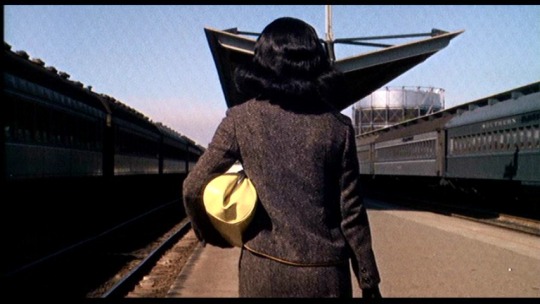
RM: I
absolutely agree the first scene is brilliant. And so odd. That first shot of
the woman walking down the platform is quite amazing. The harsh black lines of
the railway station veering off to the vanishing point. It’s like a Hopper
painting! Drained of colour – her dark suit, dark hair, dark station. But there
are flashes of colour – the yellow bag a pre-echo of her natural yellow hair –
and the pale blue sky giving a kind of innocence – there’s a sense of freedom
and containment at the same time. She’s free but she’s also on the run. We
don’t see her face then or in the next scene where she’s organising her bag and
preparing to hide evidence, and then we only see the real her when she’s blonde
again. You’re quite right – her facial expression is one of triumph. No guilt
here about what she’s done; nothing furtive or hunted.
Soon
after she’s riding her horse, her hair down and more natural. This is her
fantasy world, I think. At the stables with her beloved horse Forio. We know
later that she doesn’t trust people – especially men – but she does trust
horses, but of course even Forio lets her down in the end. And then there’s
that fantastic scene where she gets the gun – “My horse is
screaming!” – and shoots him dead to put him out of his misery – she says,
“There. There now.” The same phrase she used when she relives killing
the sailor to save her mother.
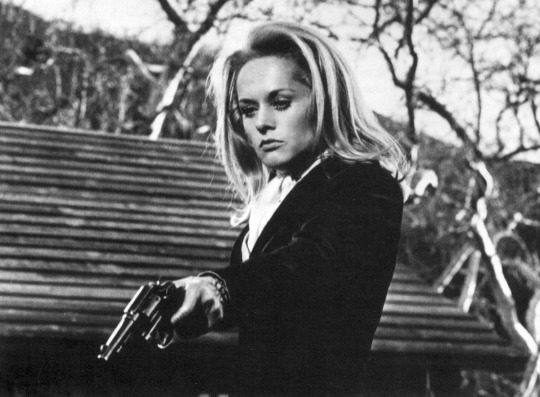
There’s
a definite theme of hunter and hunted, animal magnetism, animal cruelty, animal
behaviour and humans like animals.
Her husband Mark is an interesting
specimen! He’s a businessman but wanted to be a zoologist – he tells Marnie he
trained a jaguarundi to trust him once – “Is that all?” says Marnie.
But that is what he does with Marnie by the end, trains her to trust him through
solving the mystery of her childhood trauma. Of course, his methods are highly
objectionable: as you say, he has basically blackmailed her into marriage. And
there is a very dodgy sex scene on the ship which is like an assault, depending
on how you look at it – Marnie certainly takes no part in it and is blank and
dead-eyed as it occurs. So yes, very dodgy indeed. But he does claim to love
her and he does ultimately help her by discovering the truth behind her panics
and pathological behaviour. What happened to her as a child was appalling and
her mother is pretty bloody awful too, and by the end Marnie says to Mark,
“I want to stay with you.” How realistic is this? What does it say
about her feisty freedom-loving ways? Is it The Taming of the Shrew? Or did she
desperately need his help?
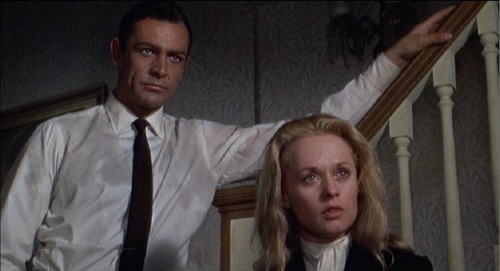
JL: Totally agree about the hunter theme.
Marnie says to him:
‘I’m just something you’ve caught.’
Mark says:
‘I’ve caught you and I’m going to keep you.’
This is uncomfortable to modern
sensibilities on sexual politics. It was made fifty years ago when the dynamics
were very different and a strong authoritative man who rescued a woman from her
demons was probably viewed as thrilling and acceptable. Also Mark does show a
tender side at times as when he comforts her during a thunderstorm.
But the ‘rape’ scene was
controversial in 1964. Hitchcock was urged to drop it but he was determined to
proceed. Some synopses of the time describe it as ‘asserting conjugal rights’.
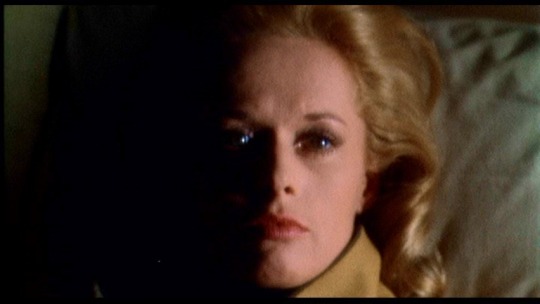
There was some difficulty about how
to classify the film. Hitchcock referred to it as a Sex Mystery.
I think the way Marnie breaks into
safes is presented as quite sexual too.
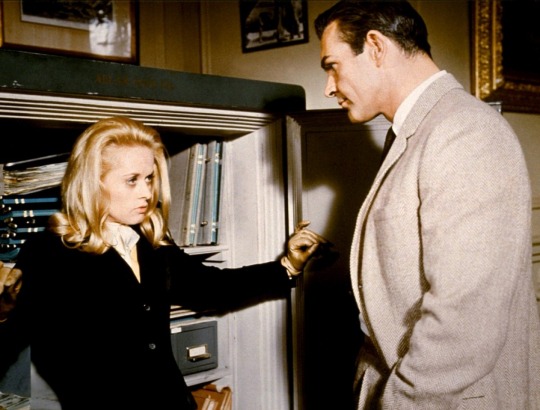
And there is a wonderful irony that
Marnie chooses to stay married to Mark rather than go to prison – not a
heartfelt recommendation for marriage.
I love that it is highly stylised
with a strong influence of German expressionism. Hitchcock was a great admirer
of Fritz Lang’s films. The scenes where the images are suffused with red are
particularly striking aren’t they, an outward sign of Marnie’s memory of blood
bring spilled.
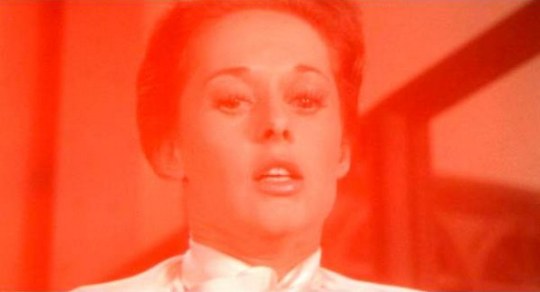
RM: I
really like the use of red in this film – it gives the scenes a painterly
quality, with the stark red drop of ink on the white shirt, the bright red
huntsmen’s jackets suggestive of the fox’s spilt blood we are spared the sight
of (yet Marnie is horrified by). That sense of a painting comes again and again
for me in this film – not only the first shot, but something that was criticised and even laughed at – the pretty badly painted backdrops, like the ship at the
end of the street where Marnie’s mother lives.
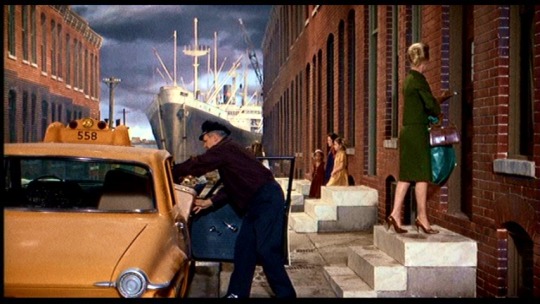
It is so painfully obvious that
it’s a painting, but I like that! I like the oddness of it – it makes the whole
thing even more like a dream or a childhood memory. Stark images that we retain
from childhood often have that quality of brightness, of being etched in
memory. And somehow those bad backdrops – that sadly would never have been
allowed in these days of CGI perfection – add to the dreamlike quality of the
whole film, and improve it in my eyes!
To
conclude, what I love about this movie is its oddness, the fake, false notes in
it only serve to make it somehow more powerful and like a strange and terrible
dream. There is so much controversy in it too, that every time I watch it, I
want to hate it but end up completely drawn to it.
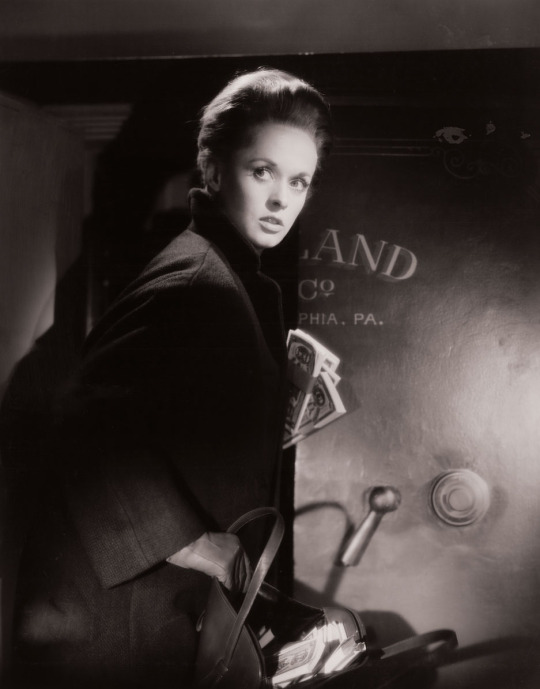
It’s
been a pleasure chatting about it with you, Jane.

Jane Lythell worked as a television
producer and commissioning editor before becoming Deputy Director of the BFI
and Chief Executive of BAFTA. She now writes full time and loves to hear from
readers. Her two novels After The Storm and The Lie of
You are published by Head of Zeus.
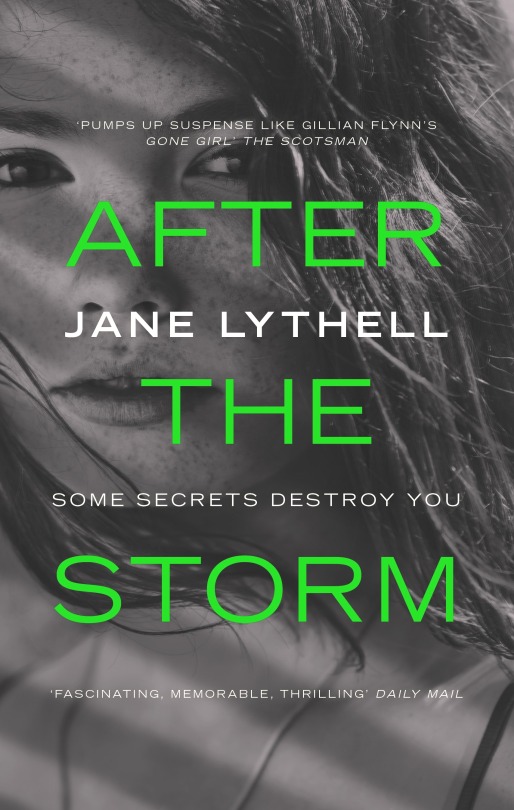
Coming up next time on #FilmFriday…another favourite Hitchcock…
